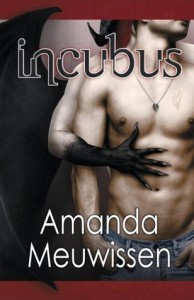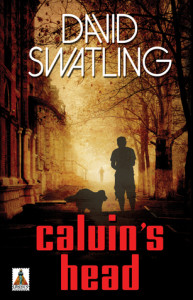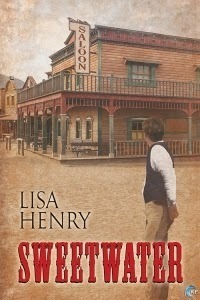 I grabbed a copy of Incubus, by Amanda Meuwissen, from the Amazon free list.
I grabbed a copy of Incubus, by Amanda Meuwissen, from the Amazon free list.
Description from Goodreads:
Nathan only ever wanted a normal life, but for him, life, family, and love are anything but normal.
On the other side of the Veil, dark and light fae exist outside the knowledge of most humans. Nathan Grier was born human, but his twin brother Jim is a changeling. On the run since they were children, time for both of them is running out. Turning to fae hunter Sasha Kelly for help, Nathan must soon face his growing feelings for the other man while trying to save himself and his brother from a fate worse than death.
Review:
Having just finished Incubus, I think I can say with some certainty that Ms. Meuwissen didn’t set out to write a book. She wanted to write a television screenplay. The chapters are even referred to as episodes and every chapter or two completes a mini adventure (as one would expect from an hour long weekly show).
Actually, I can be even more specific. Ms. Meuwissen wanted to write a Supernatural spinoff/fanfiction television show. I don’t think I’m the first to point out the obvious similarity to the show and its characters. Nathan would be Dean and Jim would be Sam. (It has been literally years since I sat down and watched a primetime television show, so if I’m catching such a similarity it must be pretty obvious.)
Also like popular, ongoing television programs, the book doesn’t wrap up by the end. In fact, between all of the distracting side adventures and the rather heavy focus on the romance, the main plot of saving Nathan from his dark fae bounty was lost. It felt very, very much like watching a show week after week and then finally realising that due to its new-found popularity, the writers, producers, etc have decided to add endless filler to stretch it into another season, and then another and then another, until you no longer even remember where it was originally going anyway.
It was well written. I liked the characters and I liked the plot. I just didn’t care for the plotting. The book is way too long, there are too many forays into adventures that go nowhere, and there are a lot of extra bits—Alex and Jim’s issues, for example. All of this sets the series up for future books, sure, but it’s incredibly frustrating to read. Both because the plot feels diluted, but also because you reach the end knowing almost nothing more than you did when you started, which feels like a distinct waste of time.
I did think the GFY aspect was sweetly done. There was very little ‘but I’m not gay’ angst and it therefore felt much more like falling in love with a person, instead of an appropriate gender. I liked that a lot.
Now, a lot of people love this book and, being as it feels like a clone of the television show Supernatural, anyone who likes it will probably like the book. If it had been a stand-alone and I didn’t feel like I had just spent two days reading for no final payoff I would probably rate it higher than I am. As it is, I’m going with not baaaad, but could have be soooo much better.
Post review discovery: Big World Netwrok (the book’s publisher) states that their goal is to provide a “… way to enjoy both fiction and non-fiction in an episodic format, not unlike a television series….” So, while I didn’t much care for the format, I have to give the book credit for being true to it and its publisher’s aim. (Plus, I feel a little smug about having recognised it.)
Of course, it goes on to say, “Unlike a traditional novel with a clear endpoint, series on BWN continue for as long as their readers want more and new seasons are renewed. The average series episode is between 4-10 pages…” Which to me means, without end and no hope for a satisfying conclusion. Again, much like almost every TV series I’ve ever become invested enough to try and watch regularly. I’m fairly sure I’ve never actually made it to a final season, final show ENDING. Part of why I stopped bothering.


